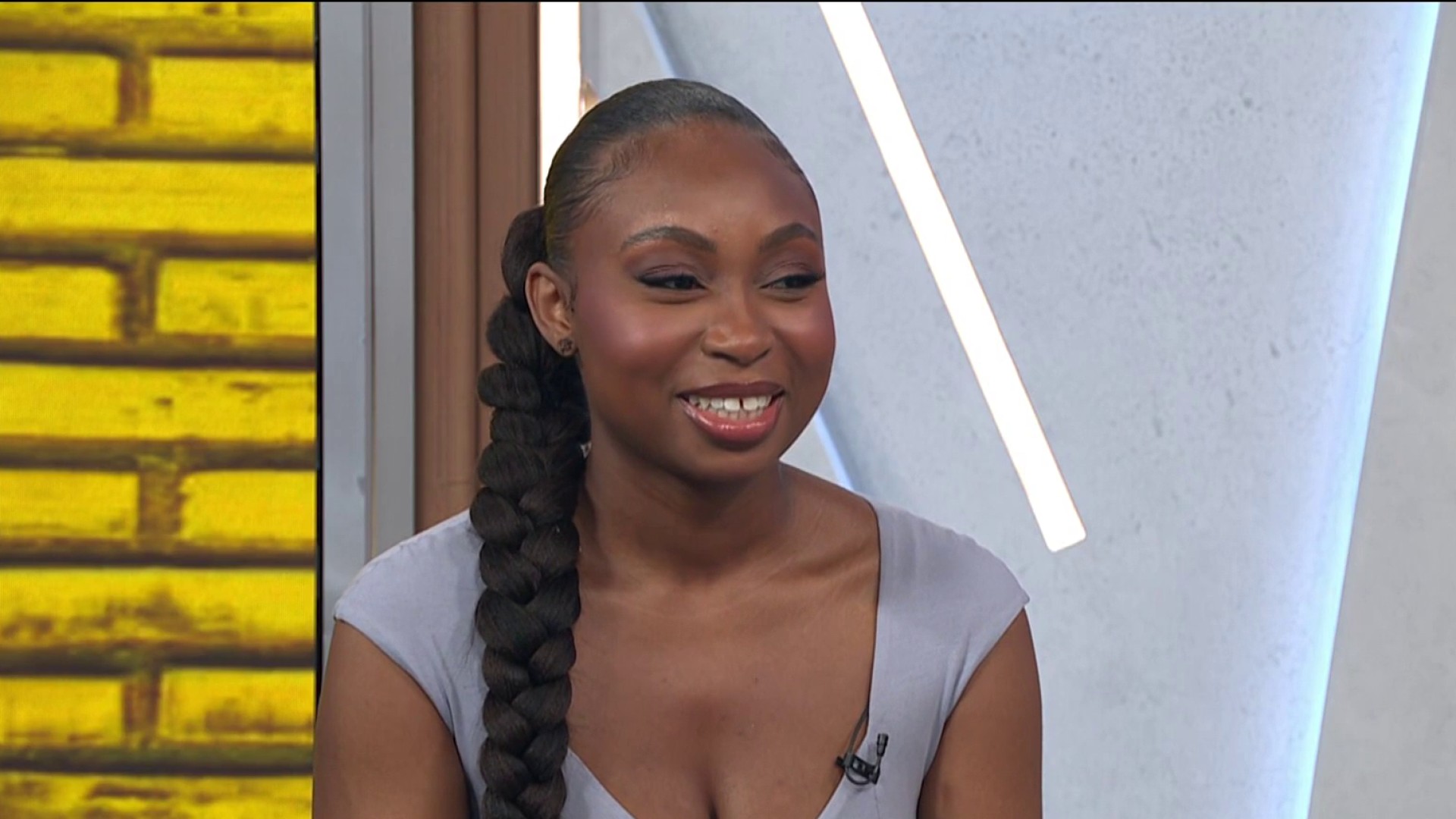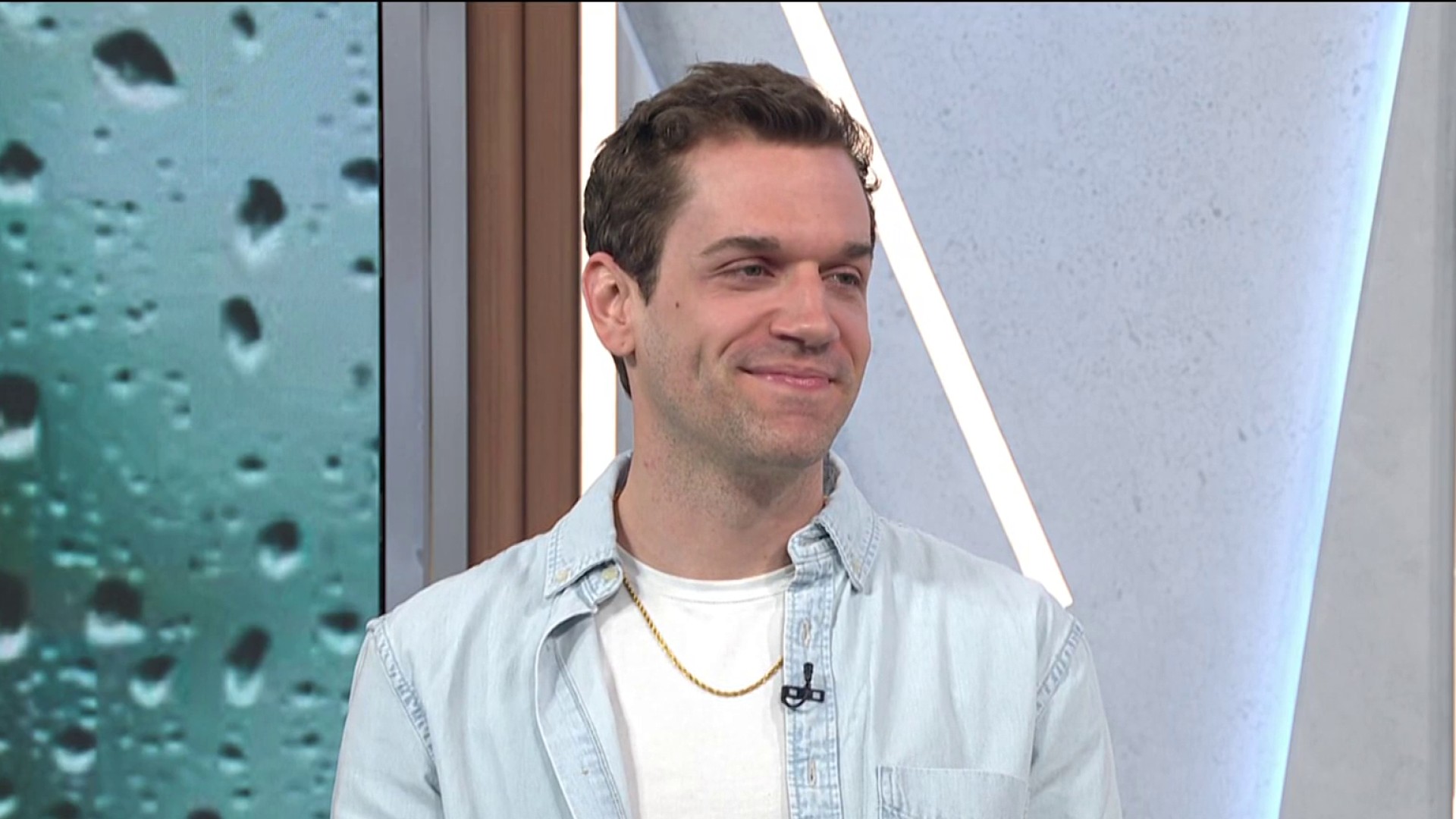“American Psycho,” the new musical based on the savage and polarizing Bret Easton Ellis novel, knows precisely what it wants to be.
It’s consistently satirical, insistently techno (video projections illustrate the world of protagonist Patrick Bateman) and hyper-raunchy (leading man Benjamin Walker spends more time in tighty-whities than his character’s prized Alan Flusser suits).
Alas, there’s no drawing blood from a stone. The weak link is Duncan Sheik’s inaccessible score, which doesn’t come near the level of “Spring Awakening,” or his underrated “Whisper House.” The best songs here are those distinctly from the 1980s, such as “Hip to Be Square,” which sets the scene for a killer conclusion to the first act.
“American Psycho” arrives stateside after a 2013 London debut, where the self-absorbed serial killer was played by Matt Smith, of “Doctor Who.” Directed then, as now, by Rupert Goold (“King Charles III”), the musical tracks Ellis’s maligned 1991 novel more closely than the Mary Harron film that came a decade later.
In all its incarnations, “American Psycho” is a critique of 1980s yuppie greed. The Wall Street boys in Bateman’s orbit numb themselves with party drugs and are so lacking in identity as to be interchangeable—mistaken identities run as a theme through Ellis’s story, adapted by Roberto Aguirre-Sacasa, a screenwriter known for work on “Glee” and “Supergirl.”
Walker, who made his bones with “Bloody Bloody Andrew Jackson,” is on stage for most of the musical’s two-and-a-half hours. After an anticlimactic prologue suggesting a throat-slashing, we’re introduced to the maybe-murderous main character in his apartment, with its Mies van der Rohe seating and then-state-of-the-art 30-inch Toshiba TV.
Over two acts, we witness a hodgepodge of prosaic production numbers, with surprisingly little gore. Among the more interesting is “Cards,” in which the creative team explores a theme from the book—corporate one-upmanship via font and embossing!—digitally painting the walls with “Pierce & Pierce” business cards in hues bandied about as dairy, bone and eggshell.
Broadway
Later, “I Am Back,” in which Patrick converses with a twitchy pile of corpses, is one of just a few times “American Psycho” rises to the macabre levels established in the book.
Walker’s nailed the requisite mix of narcissism, rage and soullessness, even if his Bateman seems a more tender fella than that icicle Christian Bale, from the film. The music doesn’t push Walker’s range, but he’s not burdened with heavy vocal chores, either. I never wanted to call the cops on him; I did want to refer him to a good psychopharmacologist.
Heléne Yorke (“Bullets Over Broadway”) plays Patrick’s steady girlfriend as an over-the-top, whiny rich girl, by way of a “Saturday Night Live” skit. Jennifer Damiano, as Patrick’s secretary, is sweet and naive. Alice Ripley, Damiano’s “Next to Normal” co-star, deserves better than what she gets here, a one-dimensional part as Patrick’s mother.

The talented supporting actors wear slicked-back hair, like the scions of Donald Trump. Ellis’s original references to their "Bible"—the elder Mr. Trump's “The Art of the Deal”—remain here in their glory. (Mr. Ellis: Where do you purchase your crystal balls?) The homophobic dialogue prevalent in the book and film also is still here, and doesn’t seem out of place in context, grating though it is.
The first act is stronger than the second, which suffers from a drawn-out segue to the Hamptons that further dampens any feelings of real “threat” you might crave.
A key point—the question of Bateman as a reliable narrator—isn't tested until the end of the first act, too late to have much of an impact. Half the reward of all the “American Psycho” iterations is contemplating whether Patrick’s deadly deeds are his sole way of feeling … or if they’ve even happened at all.
Twenty-five years ago, if you had suggested turning “American Psycho” into a musical, you’d have been tossed out of The Odeon. By the time Harron’s movie premiered, we were a society more inured to cultural depictions of homicidal rage. And then there’s today, as mass killings are routinely reported on our 65-inch flat-screens.
This may be why “American Psycho” failed to stir me: The notion that evil lurks where we may not expect to find it isn’t shocking anymore. Still, this “Psycho” would prefer to make you laugh than scream.
“American Psycho,” at the Gerald Schoenfeld Theatre, 236 W. 45th St. Tickets, on sale through Sept. 25, $69-$148. Call 212-239-6200.



